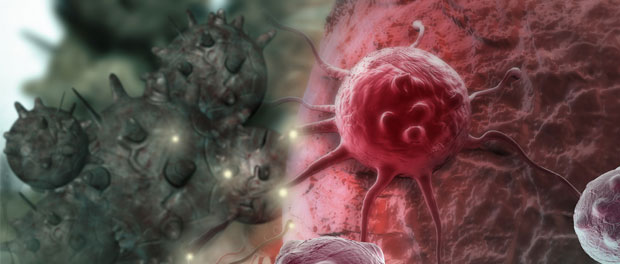
New research has helped to clear up the function of a well-known tumor suppressor gene, RB, which prevents aberrant cell growth. Researchers from the University of Illinois at Chicago and Universitat Pompeu Fabra in Barcelona have found that pRb, or retinoblastoma protein, is a tumor suppressing protein encoded by RB that maintains proper functioning of a cell’s metabolism. By epigenetically modifying histones, pRb works to control tumor cell growth. The study was published in Genes and Development.
Tumor suppressor proteins halt cell proliferation in order to prevent the uncontrollable formation of malignant tumors. By learning more about the way these protein molecules function, we can potentially develop new targeted and efficient cancer treatments.
The most well-known tumor suppressor, RB, is named after childhood retina cancer. The first tumor suppressor gene related to susceptibility for retinoblastoma was the very first “anti-oncogene,” or tumor suppressor gene, identified in humans. It was also the first anti-oncogene to be knocked out of mice, which then went on to develop tumors. pRb, the protein encoded by this gene, affects cell replication, growth, differentiation, interaction with other cells, and apoptosis. It is now believed that in most of cancers that affect humans, pRb is weakened or reduced.
Most of the research on this tumor suppressor protein focuses on its involvement in cell growth and cell division. This research focuses on an epigenetic aspect of pRb’s impact on cancer, specifically how it affects histone demethylase KDM5A. The scientists found that pRb prevents the growth of tumors by restricting KDM5A, a molecule that represses the function of the mitochondria, or the “powerhouses” of the cells, in providing energy to cells that are healthy. Cancer cells, on the other hand, are much more primitive in comparison to healthy cells, and instead need only to ferment sugars to obtain energy.
KDM5A, or lysine [K]-specific demethylase 5A, is a known epigenetic player involved in histone modification. Specifically, it demethylates histone H3 on Lys4 (H3K4) and can counteract differentiation promoted by pRb. By modifying certain histones, gene activity can be altered without affecting the underlying genotype, or DNA sequence. The activation of a significant amount of genes can be triggered by epigenetic histone modifications.
Tumors tend to be more aggressive when the cancer cell is immature, or less differentiated. The team of scientists discovered that if mitochondrial oxidation was restored in pRb-deficient cells, then they matured and weren’t as likely to divide.
Lead author and Associate Professor of Biochemistry and Molecular Genetics Elizaveta Benevolenskaya, from the UIC College of Medicine explained, “If we can replace the mutated pRb with a small-molecule KDM5A inhibitor, or bypass the need for pRb by restoring its metabolic effects, we may be able to reduce tumor aggressiveness. We are excited that the link of KDM5A inhibition to healthy mitochondria may have implications in developing restorative, differentiation-based therapies.”
By suppressing KDM5A activity in tissues and testing various human cancer cell lines that lack pRb, they found that the cells stopped dividing and their metabolism went back to normal. This effect was also observed when they made the cells produce an overabundance of mitochondria.
According to Jalees Rehman, UIC associate professor of medicine and pharmacology and the study’s co-author, the group’s research highlights metabolism as a crucial cause of abnormal function in cancers that lack pRb. The scientists believe that, in light of this study, metabolic therapies could be used in addition to traditional chemotherapy.
Source: Váraljai, R., Islam, A., Beshiri, M.L., Rehman, J., Lopez-Bigas, N., Benevolenskaya, E.V. (2015). Increased mitochondrial function downstream from KDM5A histone demethylase rescues differentiation in pRB-deficient cells. Genes & Development, 29(17): 1817.
Reference: Parmet, S. Metabolism may keep cancer cells in check. University of Illinois at Chicago. 16 Oct 2015. Web.



